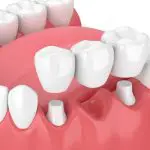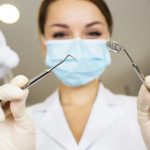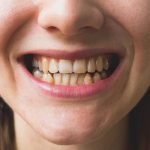Why Your Back Teeth Hurt When You Chew: Causes and Remedies

Pain in the back teeth while chewing can be an uncomfortable and frustrating experience. The back teeth, also known as molars, are crucial for grinding and crushing food. When they hurt, it can make eating a painful and challenging task. There are various reasons why your back teeth may hurt when you chew, and it is essential to understand the causes and remedies to alleviate the pain and prevent future issues. One of the common causes of back teeth pain while chewing is tooth decay or cavities. The molars are susceptible to decay as they have numerous grooves and crevices that can trap food particles and bacteria. When left unaddressed, these bacteria can lead to decay, causing pain and discomfort while chewing. In addition to cavities, other causes of back teeth pain include gum disease, cracked or broken teeth, and teeth grinding. Fortunately, there are remedies available to treat these issues and relieve the pain, allowing you to enjoy your meals without discomfort.
Back teeth pain while chewing can be an incredibly frustrating and uncomfortable experience. This type of pain is usually caused by issues with the teeth or gums, such as cavities, gum disease, or tooth fractures. In some cases, the problem may be related to problems with the temporomandibular joint (TMJ), which connects the jawbone to the skull. When this joint is out of alignment, it can cause pain and discomfort while chewing. Additionally, certain lifestyle habits such as grinding teeth, eating hard foods, or consuming excessive amounts of sugar can contribute to back teeth pain. Fortunately, there are several remedies available to alleviate the discomfort, ranging from simple at-home measures like saltwater rinses and avoiding certain foods, to more complex treatments like dental procedures or physical therapy.
The discomfort and pain experienced in the back teeth while chewing can be a significant issue for many people, affecting their quality of life and overall oral health. This problem can arise due to various reasons, including cavities, gum disease, cracked teeth, or even stress. Ignoring this issue can lead to severe consequences, such as tooth loss or infection, which can further impact one’s overall health and wellbeing. Seeking timely treatment and remedies for this problem is crucial to prevent further complications and ensure that the affected individual can enjoy a healthy and pain-free life.
Dental Issues
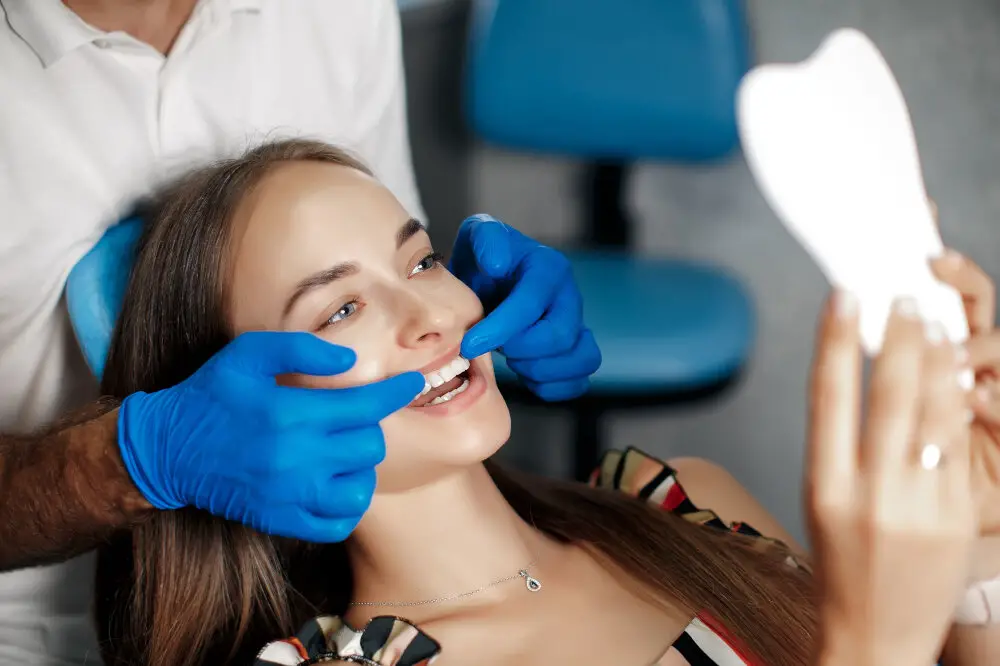
Dental issues are a common problem, affecting people of all ages. One of the most common dental problems is toothache, particularly back teeth pain when chewing. There are various causes of this discomfort, including cavities, gum disease, cracked or broken teeth, and abscesses. Cavities are the result of tooth decay caused by bacteria and plaque buildup, whereas gum disease is caused by inflammation and infection of the gums. Cracked or broken teeth can also cause back teeth pain when chewing, as can abscesses, which are pockets of pus that form at the base of the tooth. Other dental issues that can cause discomfort when chewing include infections, impacted wisdom teeth, and temporomandibular joint (TMJ) disorders. To treat back teeth pain when chewing, it’s important to identify the underlying cause of the discomfort. If the pain is caused by a cavity, the dentist will remove the decayed portion of the tooth and fill it with a dental filling. If gum disease is the culprit, the dentist may recommend scaling and root planing to remove plaque and tartar buildup below the gum line. In cases of cracked or broken teeth, the dentist may recommend a dental crown to protect the tooth and prevent further damage. If the pain is caused by an abscess, the dentist may need to drain the pus and prescribe antibiotics to clear the infection. It’s essential to address dental issues promptly to prevent further damage and discomfort.
Tooth decay is a common dental problem that occurs when the bacteria in your mouth produce acid that erodes the enamel and dentin of your teeth. This process can be caused by poor oral hygiene, a diet high in sugar and starch, dry mouth, or certain medical conditions. When left untreated, tooth decay can lead to cavities, tooth sensitivity, and even tooth loss. The symptoms of tooth decay can range from mild discomfort to severe pain, especially when chewing or biting down on food. Treatment options for tooth decay include fillings, crowns, root canals, and extractions, depending on the severity of the decay. Preventative measures such as regular dental check-ups, brushing and flossing, and a healthy diet can help reduce the risk of tooth decay and keep your teeth healthy and pain-free.
Gum disease, also known as periodontal disease, is a common condition that affects the gums and bone supporting the teeth. It is caused by a buildup of plaque and bacteria on the teeth and gums, which can lead to inflammation and infection. Gum disease can range from mild gingivitis, which causes redness and swelling of the gums, to more severe forms of periodontitis, which can result in tooth loss and damage to the surrounding bone. Symptoms of gum disease include bleeding gums, bad breath, gum recession, and loose teeth. Treatment for gum disease may include deep cleaning, antibiotic therapy, and in severe cases, surgery. It is important to maintain good oral hygiene and schedule regular dental check-ups to prevent and detect gum disease early.
Bruxism, or teeth grinding, is a common condition that can cause significant discomfort in your back teeth when you chew. This condition can occur during the day or night and can be caused by stress, anxiety, or an abnormal bite. The constant grinding and clenching of the teeth can wear down the enamel, leading to sensitivity and pain in the back teeth. To remedy bruxism, dentists may recommend wearing a mouthguard to protect the teeth from damage, practicing relaxation techniques to manage stress, or adjusting the bite through orthodontic treatment. It is important to address bruxism as it can lead to more severe dental problems and even jaw pain.
A dental abscess is a painful infection that occurs at the root of a tooth. It is caused by a buildup of bacteria and pus, which can lead to swelling, redness, and throbbing pain. In some cases, the infection may also spread to the jaw, neck, or other areas of the body, causing more serious health problems. Treatment for a dental abscess typically involves draining the pus and removing the infected tissue, followed by antibiotics to prevent further infection. If left untreated, a dental abscess can lead to tooth loss, bone damage, and other complications, so it is important to seek prompt dental care if you suspect you may have one.
Medical Conditions
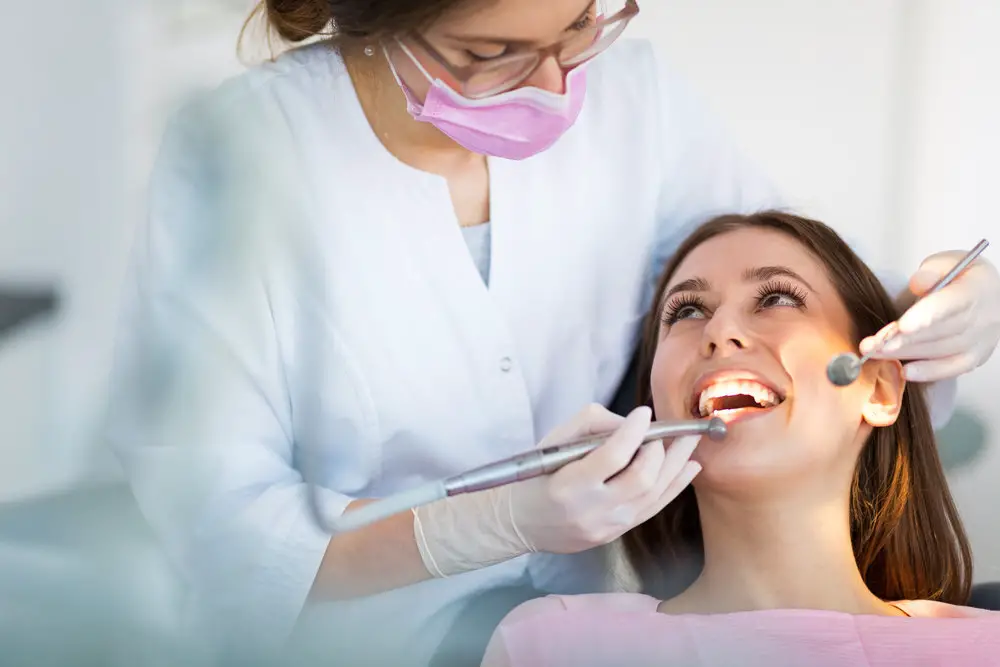
Medical conditions can also be a cause of discomfort when chewing. Some of the medical conditions that can lead to pain in your back teeth when chewing include temporomandibular joint disorder (TMJ), sinusitis, and dental abscesses. TMJ is a condition that affects the jaw joint and the muscles that control jaw movement, causing pain when chewing. Sinusitis is an inflammation of the sinuses that can cause pain and pressure in the teeth, especially the back teeth. Dental abscesses occur when bacteria infect the pulp of the tooth, causing pain and swelling that can extend to the surrounding teeth and gums. In such cases, it is important to seek medical attention from a dentist or a doctor to diagnose and treat the underlying condition. If you are experiencing back tooth pain while chewing, you should also consider your overall health and any underlying medical conditions you may have. Chronic conditions such as heart disease, diabetes, and autoimmune disorders can affect the health of your teeth and gums, leading to pain when chewing. It is essential to manage these conditions properly to prevent dental problems and maintain good oral health. Eating a balanced diet, practicing good oral hygiene habits, and visiting your dentist regularly can also help prevent tooth pain and other dental problems. By taking care of your overall health and dental hygiene, you can enjoy pain-free chewing and maintain a healthy smile.
Temporomandibular Joint Disorder (TMJ) is a condition that affects the jaw joint and muscles that control jaw movement. It can cause discomfort and pain in the jaw, neck, and face, as well as headaches and difficulty chewing. TMJ can be caused by a variety of factors, including injury, arthritis, teeth grinding, and stress. Treatment options include lifestyle changes, such as stress reduction and jaw exercises, as well as medication and dental devices. In some cases, surgery may be necessary. If you are experiencing symptoms of TMJ, it is important to seek medical attention to determine the underlying cause and appropriate course of treatment.
Sinusitis is a condition that occurs when there is inflammation of the sinuses, which are air-filled spaces in the skull that are located behind the forehead, cheeks, and eyes. This inflammation can be caused by a variety of factors, including allergies, infections, or even structural abnormalities in the sinuses themselves. The symptoms of sinusitis can be quite uncomfortable and may include facial pain, pressure, and tenderness, as well as a stuffy or runny nose, headaches, and a reduced sense of smell. Treatment options for sinusitis may include over-the-counter pain relievers, nasal decongestants, and saline nasal sprays, as well as prescription medications like antibiotics or corticosteroids in more severe cases. In some cases, surgery may be necessary to correct structural issues in the sinuses and provide lasting relief.
Although ear infections may seem unrelated to dental pain, they can actually be a cause. The ear is connected to the mouth and throat through the Eustachian tube, which helps regulate pressure and drain fluids. When this tube becomes blocked or infected, it can lead to pain and pressure in the ear, as well as other symptoms like fever and difficulty hearing. In some cases, the infection can spread to the jaw and teeth, causing pain when chewing or biting. It’s important to see a doctor or dentist if you suspect an ear infection, as prompt treatment can prevent complications and further discomfort.
Arthritis is a common cause of joint pain and stiffness, and it can affect any joint in the body, including those in the jaw. When arthritis affects the jaw joint, also known as the temporomandibular joint (TMJ), it can make it difficult to chew, speak, and even breathe properly. The pain and discomfort may be felt in the jaw itself, as well as in the ear, neck, and shoulders. Arthritis can be caused by a variety of factors, including genetics, age, injury, and infection. Treatment options for TMJ arthritis may include pain relievers, anti-inflammatory medications, physical therapy, and in severe cases, surgery.
Lifestyle Factors
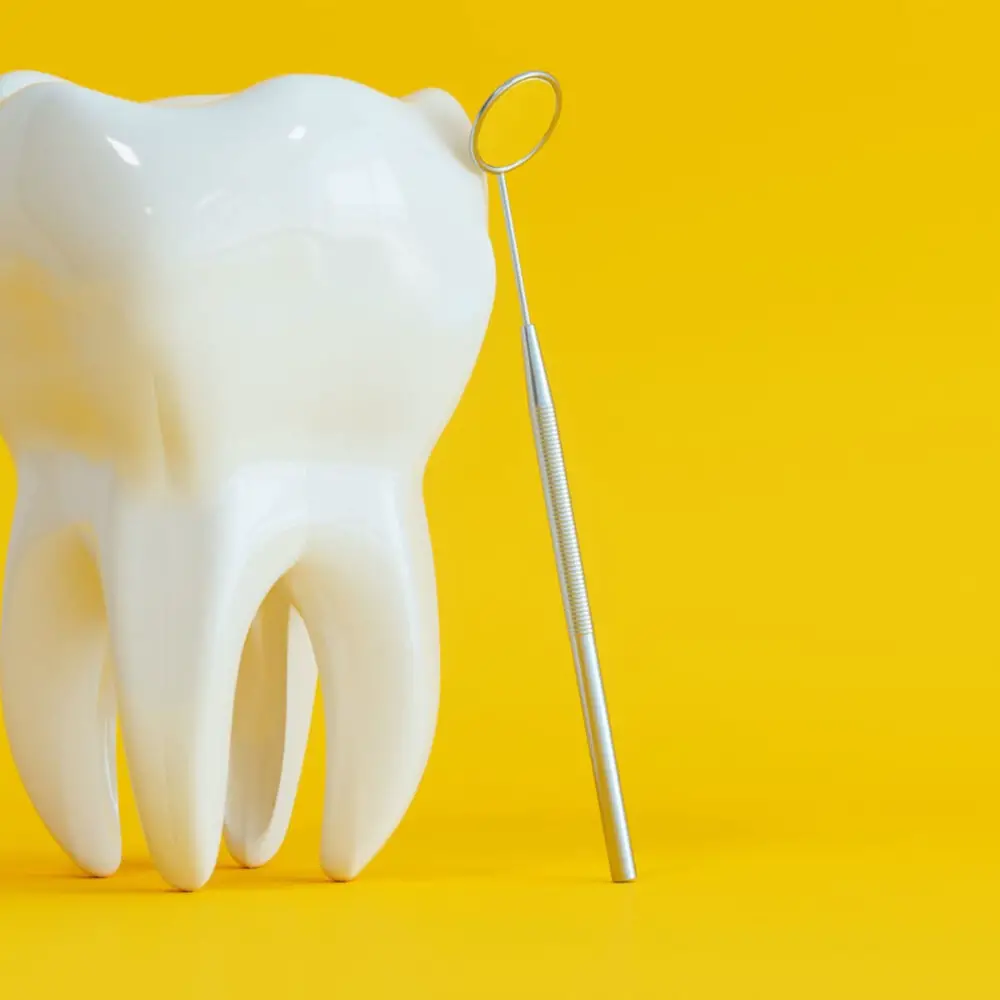
Lifestyle factors can play a significant role in causing back teeth pain when chewing. One such factor is poor dietary habits. Consuming foods and drinks that are high in sugar and acid content can lead to tooth decay and erosion, which can cause sensitivity and pain while eating. Additionally, a diet lacking in essential nutrients, such as calcium and vitamin D, can weaken teeth and increase the risk of tooth decay and gum disease. Maintaining a balanced and nutritious diet can help prevent back teeth pain and promote overall oral health. Another lifestyle factor that can contribute to back teeth pain is poor dental hygiene. Neglecting to brush and floss regularly can allow plaque and bacteria to build up on teeth, leading to decay and gum disease. A lack of regular dental check-ups and cleanings can also contribute to dental problems that cause pain while chewing. Practicing good oral hygiene habits, such as brushing twice a day, flossing daily, and scheduling regular dental visits, can help prevent back teeth pain and other dental issues.
Poor diet is a common cause of dental problems, including back teeth pain when chewing. Consuming a diet high in sugar and processed foods can lead to tooth decay and gum disease, which can cause discomfort and pain while eating. Lack of essential nutrients in the diet, such as calcium and vitamin D, can also lead to weaker teeth and bones, making them more prone to damage and pain. It is essential to maintain a balanced diet with plenty of fruits, vegetables, whole grains, and lean proteins to support optimal oral health and prevent dental problems.
Stress is a common culprit of various health problems, including dental pain. When individuals are under stress, their bodies release hormones that can cause inflammation and pain in different parts of the body, including the teeth. Stress can also lead to teeth grinding, which puts pressure on the back teeth and can cause them to become sensitive or painful when chewing. To alleviate this type of pain, it is important to address the underlying stress through relaxation techniques such as meditation, exercise, or therapy. Additionally, wearing a mouthguard at night can prevent teeth grinding and reduce the risk of dental pain.
Smoking is a well-known habit that can cause a multitude of health issues, including dental problems. The nicotine and tar in cigarettes can leave stains on teeth, cause bad breath, and increase the likelihood of gum disease. Additionally, smoking can reduce blood flow to the gums, which can lead to a weaker immune response to bacteria and infections. This can result in painful gum disease, tooth decay, and even tooth loss. Therefore, if you are a smoker and you are experiencing discomfort in your back teeth when chewing, quitting smoking can significantly improve your dental health and reduce the likelihood of further damage.
Alcohol consumption can exacerbate the discomfort and pain associated with chewing, as it can cause dehydration and inflammation throughout the body. Alcohol is also known to increase the likelihood of acid reflux, which can lead to further irritation and discomfort in the esophagus and throat. Furthermore, excessive alcohol intake can damage the nerves that control the muscles in the mouth and throat, leading to difficulty in swallowing and chewing. To alleviate the pain associated with chewing, it is recommended to limit alcohol consumption and maintain proper hydration levels by drinking plenty of water throughout the day.
Remedies
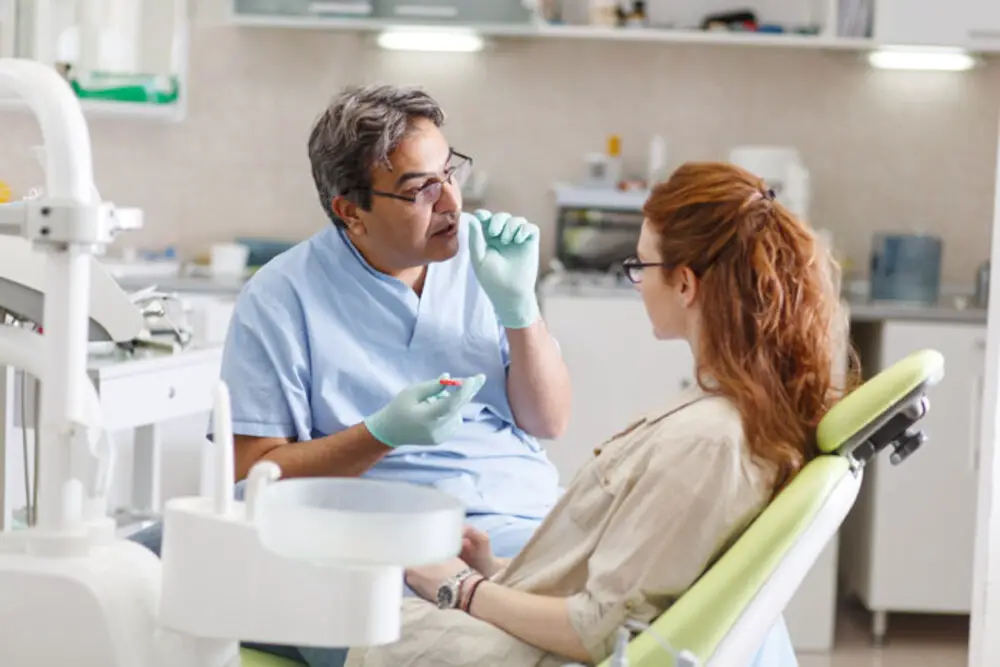
When it comes to remedies for back teeth pain, there are several options available depending on the underlying cause of the discomfort. For instance, if the pain is caused by a cavity, the dentist may recommend a filling or a root canal procedure. In cases where the pain is due to gum disease, the dentist may recommend a deep cleaning or scaling and root planing to remove plaque and tartar buildup. Pain relief medication such as ibuprofen or acetaminophen can also be prescribed to alleviate the discomfort. Another effective remedy for back teeth pain is the use of warm salt water rinses. This simple remedy can help to reduce inflammation and provide temporary relief from pain. To create the rinse, simply dissolve a teaspoon of salt in a cup of warm water and swish it around in your mouth for a minute or two, being sure to focus on the affected area. Additionally, avoiding hard and crunchy foods that put pressure on the back teeth can also help alleviate pain. Incorporating a soft diet with foods like soup, applesauce, and yogurt can help in this regard as well. Overall, seeking professional dental care and following recommended treatments in combination with at-home remedies can help reduce or eliminate back teeth pain.
Home remedies can be an effective way to alleviate the pain caused by back teeth when chewing. One such remedy is using a warm saltwater rinse, which can help reduce inflammation and promote healing. Another option is to apply a cold compress to the affected area to numb the pain and reduce swelling. Clove oil is also a popular choice due to its natural analgesic properties, which can provide temporary pain relief. Additionally, maintaining good oral hygiene and avoiding hard, crunchy foods can prevent further irritation and pain in the back teeth. It is important to consult a dentist if the pain persists or worsens, as it may be a sign of a more serious dental issue.
Over-the-counter medication (OTC) is a type of medication that can be purchased without a prescription from a healthcare professional. OTC medications are commonly used to treat minor ailments such as headaches, colds, and pain. They are available in a variety of forms, including tablets, capsules, creams, and liquids. When it comes to back teeth pain, over-the-counter medication can provide temporary relief. Painkillers such as ibuprofen and acetaminophen can help reduce pain and inflammation. Topical pain-relieving creams and gels can also be applied directly to the affected area to provide relief. However, it is essential to consult with a dental professional to determine the underlying cause of the pain, as OTC medication may not address the root of the problem.
Professional treatment for back teeth pain when chewing may involve a variety of approaches, depending on the underlying cause of the discomfort. For instance, if the pain is due to a dental cavity, the dentist may recommend a filling or root canal therapy to remove the decayed portion of the tooth and restore its structure and function. In cases where the pain is caused by gum disease, a deep cleaning procedure or scaling and root planing may be necessary to remove plaque and tartar buildup from the teeth and gums. Additionally, if the pain is related to a temporomandibular joint (TMJ) disorder, the dentist may suggest a custom-fitted mouthguard to alleviate pressure on the jaw and reduce pain during chewing. Regardless of the cause, seeking professional treatment for back teeth pain can help improve oral health and prevent further complications.
Preventive measures are crucial in avoiding back teeth pain when chewing. Firstly, maintaining good oral hygiene by brushing and flossing regularly can prevent cavities and tooth decay which can lead to toothaches. Secondly, avoiding hard and sticky foods can decrease the risk of damaging teeth and causing pain. Thirdly, wearing a mouthguard during sports or physical activities can protect teeth from trauma. Fourthly, regular dental check-ups can detect any dental problems early on and prevent them from becoming more serious. Finally, managing stress levels can decrease teeth grinding and clenching which can cause pain in the teeth and jaw. By following these preventive measures, individuals can maintain good oral health and avoid back teeth pain when chewing.
Back teeth pain during chewing can be caused by several factors, including tooth decay, gum disease, grinding or clenching teeth, and cracked teeth. These issues can lead to sensitivity, inflammation, and damage to the tooth and surrounding tissues. To remedy this pain, it is essential to identify the underlying cause and address it accordingly. This may involve treating cavities, improving oral hygiene practices, wearing a mouthguard at night, or seeking professional dental care. Pain relief options may include over-the-counter pain medication, topical numbing agents, or dental procedures such as root canals or extractions. Regular dental check-ups and maintaining good oral hygiene habits can help prevent future instances of back teeth pain.
When you experience pain while chewing food, it can indicate an underlying dental issue that requires professional attention. Seeking professional help from a qualified dentist is crucial because they can diagnose the cause of your pain and provide the appropriate treatment. Ignoring the pain or trying to self-treat the issue can lead to further complications and potentially irreversible damage. A dental professional can also provide preventive care and advice to help you maintain good oral health and prevent future dental problems. Therefore, it is important to prioritize seeking professional help to address any dental concerns and maintain a healthy smile.
In conclusion, back teeth pain while chewing is a common problem that affects many people. It can be caused by a variety of factors including dental decay, gum disease, bruxism, and TMJ disorder. The good news is that there are several remedies to alleviate the pain, such as practicing good oral hygiene, using a mouthguard, and seeking professional dental treatment if necessary. Keeping up with regular dental check-ups can also help prevent back teeth pain and catch any potential issues early on. If you are experiencing back teeth pain while chewing, it is important to address it promptly to avoid further discomfort and potential complications.
Conclusion
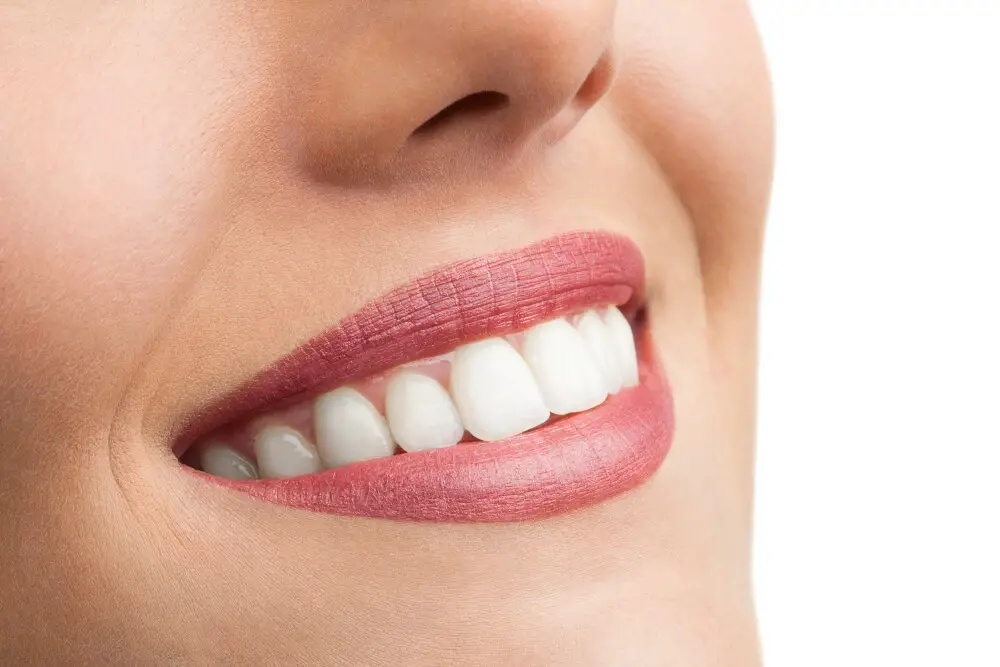
In conclusion, experiencing pain while chewing can be a frustrating and uncomfortable experience. However, understanding the underlying causes of this pain and implementing appropriate remedies can help alleviate the discomfort. Whether it be tooth decay, gum disease, or a misaligned bite, seeking professional dental care is crucial for both immediate relief and long-term oral health. Additionally, maintaining good oral hygiene practices and avoiding hard or sticky foods can aid in preventing future instances of back tooth pain. With proper care and attention, you can enjoy pain-free chewing and a healthy, happy smile.

